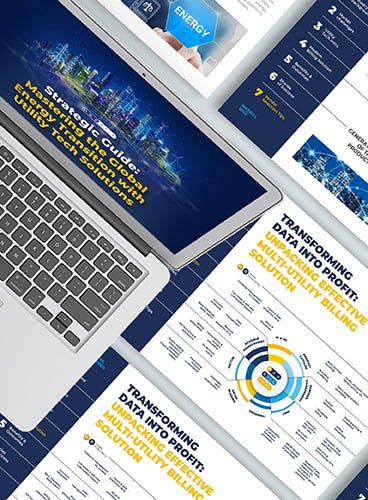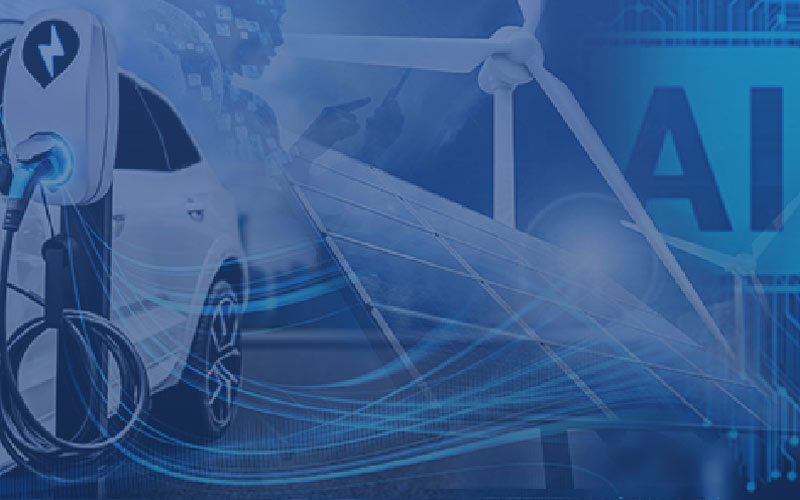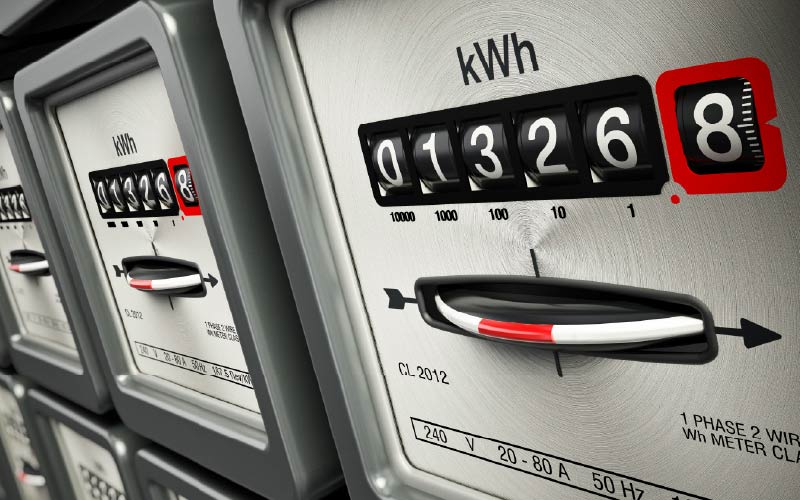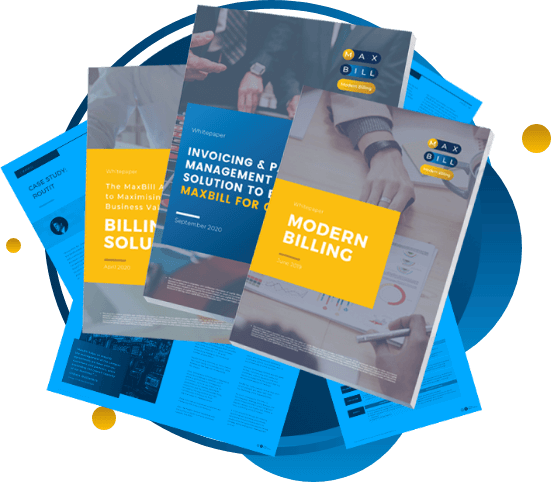Update: April 18, 2025
Heat network metering revenue collection might be undermined under regulatory pressures because they question the way heat networks do metering and billing, customer service, and energy saving.
First, what are these regulations, in the first place?
These are Energy Efficiency Directive (EED), Heat Network (Metering and Billing) Regulations, and the UK’s net-zero strategy and smart metering rollout, mandating accurate metering, transparent billing, and energy efficiency.
They laid the groundwork for other frameworks, such as Heat Network Operators Guidance, Heat Network Technical Assurance Schems, and Heat Trust. These frameworks are focused on operational standards, technical quality checks, and customer protection mechanisms.
To be more specific, HNOG sets out best practices for operating heat networks, incl. billing, metering, customer service, while Heat Trust – customer service and billing protection standards for residents.
The thing is that local authorities, developers, and procurement teams started using HNOG in tender scoring, and non-compliance with them will make the transition to Ofgem’s upcoming Heat Network Market Framework a painful process.
So, how to comply with all these regulations and frameworks?
We at MaxBill, we know the answer. Our metering and billing solution is tailored specifically for heat networks and factors in the requirements coming from current regulations.
Keep on reading as we distil the solution that gets your business efficient, scalable, and compliant.
Key Takeaways
- From the Energy Efficiency Directive to the upcoming Ofgem-led Heat Network Market Framework — and heat networks are under pressure to upgrade how they handle metering, billing, and customer service.
- Revenue collection is at risk if metering and billing systems remain outdated, inaccurate, or non-transparent — especially as local authorities and developers now score tenders based on compliance with frameworks like HNOG and Heat Trust.
- Accurate metering and transparent billing aren’t just checkboxes — they’re essential for reducing energy waste, cutting carbon emissions, and delivering fair, understandable bills to residents.
- MaxBill’s metering and billing solution is purpose-built for heat networks — supporting everything from meter integration and bulk billing to regulatory reporting and debt management workflows.
- A modern billing platform ensures compliance and efficiency, with features like real-time consumption tracking, automated read validation, and built-in service-level monitoring.
- Missed reads, billing errors, and poor customer communication create service risk and reputational damage — MaxBill addresses this with automated workflows and integrated CRM.
- The future of district heating is data-driven, customer-centric, and compliance-led — MaxBill helps you get there without disruption.
Why to revamp the approach to heat network metering and billing
In fact, energy usage can be curtailed, leading to reduced consumer bills and a corresponding decrease in carbon emissions. Additionally, metering fosters equitable and transparent billing practices for heat network customers.
What’s the next step for heat networks management companies?
That is to embrace a comprehensive meter reading and billing approach that accounts for the intricacies of the contemporary UK communal and district heating landscape.
Key considerations include the number of heat networks, further reading on heat meter installation, methodologies for district heating billing and data collection, and payment alternatives.
Must-have capabilities in a compliant heat network metering and billing system

When it comes to a modern heat network metering and heat billing solution, it’s crucial to consider a comprehensive set of functionalities.
This functionality checklist serves as a guide for ensuring that the system required is not only efficient but also aligns seamlessly with the intricacies of communal heating and heat network management:
- Meter Reading Management: An ideal built-in modern billing product should encompass robust capabilities for efficient meter reading data management. Asynchronous and scalable systems are essential for achieving optimal performance throughput.
- Meter Equipment Support: Ensure support for both standard and smart meters, including various register configurations, meter hierarchy, and totalised and related meters.
- Product Compatibility: Align with industry best practices by accommodating energy and water reading flows in a seamless manner.
- Meter Read Collection: Implement a multi-layered approach for meter read collection, including options for storing readings, integrating with order management processes, facilitating real-time processing, and enabling bulk transfers.
- Readings Validation: Integrate a comprehensive validation system that encompasses format validation, consistency checks with service points and meters, as well as industry-recommended validation checks like history checks, tolerance checks, reading type validation, and unit validation.
- Reading Amendment: Offer provisions for updating reading data through both APIs and a user-friendly GUI. Ensure the system initiates appropriate actions for re-processing reads based on the nature of updates, such as re-validation, annulment of billed consumption, or generation of new consumption records.
- Readings Assessment: Enabling the re-processing of readings is crucial in scenarios involving historical changes due to amendment requests or late entries. Incorporate mechanisms that allow for automatic actions, including read annulment and re-validation.
- Estimated Reads: Create algorithms that generate accurate estimations for missing readings or implausible consumption. Align estimation practices with industry standards, calculating averages only between real readings and utilising usage profiles for accurate estimation.
- Billing Functionalities: Incorporate a range of calculation functionalities, including the ability to skip specific accounts from regular billing, consistency checks for gas consumption, bill cycle management, and reading window definitions for precise billing periods.
- Troubleshooting and Logging: Ensure a robust logging system that generates detailed logs during the billing process, providing a clear record of processing details for each reading.
- Customer Consumption Generation: The system should generate consumption records based on readings, considering factors such as register unit measurements, recurring settings, and meter-to-price plan unit conversions.
- Grouping of Consumption: Implement consumption grouping into invoice details based on various parameters, including bill period changes, package changes, price changes, real readings, and resource usage (registers/meters) during different time periods.
- Master Data Synchronization: Incorporate processes for synchronizing reading data, service points, meters, and customer information with district heating billing and data collection system.
- Reading Management: Provide readily available reading access APIs, system-wide reading management operations, and robust traceability and logging mechanisms.
- Debt Management: Establish diverse workflows for debt management that cater to customers on payment plans, addressing potential default scenarios. Through business workflows, it is possible to accommodate situations where customers simultaneously settle current bills while progressively paying off outstanding debts according to agreed-upon plans.
This comprehensive approach not only ensures fair and transparent billing practices but also addresses prevalent issues like debt management, which holds significant relevance for heat suppliers.
By embracing these ‘must-have recommendations’, communal heating and district heat networks can be equipped with an advanced billing solution tailored to the requirements of current energy efficiency regulations and directives.
A new phase of district heating billing enters after the government response

The fundamental problem was the inadequate rates of heat meter installation, which are not aligned with the policy’s aims. This discrepancy has been further exacerbated by recent energy price rises, leading to concerns about cost-effectiveness and consumer protections in the heat network sector. Specific issues highlighted include:
- Transparency of Information to Consumers: There is a need for better transparency regarding billing practices, heat metering data collection, consumer protections, and heat supply agreements.
- Back-billing and Price Change Notifications: Concerns over back-billing limits and the implications of price change notifications, especially for unmetered properties.
- Pre-contractual Transparency: The necessity for clearer pre-contractual information for prospective consumers, particularly regarding heat network connections.
- Small and Medium-sized Enterprises (SMEs): Challenges faced by SMEs in understanding and managing their heat supply, including billing transparency, higher heat costs, heat metering revenue collection.
- Compliance and Enforcement: The complexity and potential financial burden of compliance and enforcement actions on smaller, not-for-profit, or cost pass-through networks.
Government Response
In response to these issues, the government has proposed several measures:
- Transparency and Metering: The government confirms the removal of the Open class and the discontinuation of the cost-effectiveness tool under the new regulatory regime. They plan to define instances where meters should not be installed, consult on this, and refine specifications for heat meter installation.
- Billing Practices: The government will engage further to develop guidance and templates on heat metering data collection and billing system practices, taking into account the needs of different market segments. They aim to include additional information, such as greenhouse gas emissions, on consumer bills.
- Back-billing and Heat Supply Contracts: The government will further explore different options for back-billing limits and consider the implications of price change notifications and heat supply contracts for unmetered properties.
- Pre-contractual Transparency: Measures to provide prospective consumers with sufficient information before and during property transactions, including standardizing the term “community scheme” to “heat network” and working with housing bodies to include heat network information in their guides.
- SME Protections: The government acknowledges the issues faced by SMEs and will explore extending consumer protections to them, including fair contract terms, transparent heat meter billing, and price change notifications.
- Compliance and Enforcement: The government plans to develop a monitoring regime, conduct audits, and implement a phased approach to compliance and enforcement. They will consider proportionality in penalties and provide clear guidance and support for smaller networks.
At MaxBill, we’re aware of changes and are ready to help heat networks to configure them in the existing changes.
The choice dilemma for district heating billing and data collection: outsourcing vs in-house

Heat networks, property owners, and private utility operators are often faced with a critical decision: should billing processes be managed in-house or outsourced to a third-party provider?
This choice holds significant implications for efficiency, quality of service, costs, and the overall customer experience. Let’s now explore the pros and cons of each type and the key considerations that should guide this decision-making process:
District heating metering served by in-house billing:
Pros:
- Direct Financial Oversight: Opting for in-house heat metering & billing frameworks means absolute control and streamlined supervision of financial operations. This empowers swift adaptations and fosters a culture of accountability and transparency.
- Tailored Flexibility: Internal billing services grant the liberty to craft and execute billing procedures aligned with an organisation’s unique processes. When implementing the right meter reading and billing software, heat suppliers can easily adapt to evolving business needs. They can get scalable solutions that can accommodate growth, changes in billing models, and technological advancements.
- Safeguarding Confidentiality: Certain industries that deal with customers’ sensitive data demand stringent confidentiality. By wielding in-house billing, meticulous control over customer accounts can be effectively maintained, ensuring privacy is upheld.
Cons:
- Lack of Experience: Opting to manage billing processes in-house requires an adept team with the requisite experience in billing operations, regulatory compliance, and customer service. Overcoming the learning curve and staying updated with industry trends can be time-consuming and resource-intensive.
- Capacity: Successfully handling billing in-house demands a robust infrastructure, software, and personnel. Adequate capacity must be available to manage fluctuations in billing volumes, customer queries, and potential disputes.
- Cost: While managing heat metering & billing frameworks internally might appear cost-effective at first glance, it’s essential to consider the comprehensive expenses. These include personnel salaries, software investments, training costs, and potential expenses arising from billing errors or customer disputes.
Outsourced district heating metering billing services:
Pros:
- Quality of Service: Outsourcing to a reputable third-party provider grants access to specialised expertise and proven billing systems. These providers are equipped to ensure accuracy, compliance with regulations, and efficient operations, leading to improved overall service quality.
- Options for Recourse: Reputable third-party providers offer avenues for recourse in case of billing errors or disputes. This alleviates the burden on tenants, building owners, and service providers, as the provider assumes responsibility for resolution.
- Cost: Outsourcing can provide cost predictability through structured billing arrangements, often based on transaction volume or a flat fee. It eliminates the need for substantial upfront investments in software and infrastructure, translating to potential cost savings over the long term.
- Customer Service: Outsourcing enables service providers to focus on core activities while entrusting billing-related customer inquiries to professionals. This enhances overall customer satisfaction and ensures that customer interactions are handled efficiently.
Cons:
- Limited Command Over Billing District Heating Operations: Outsourcing requires the presence of a business representative to monitor and ensure contractual obligations are met. However, it doesn’t grant direct oversight of billing procedures.
- The Challenge for Small Enterprises to Secure an Outsourcing Partner: For small businesses, engaging third-party billing companies can pose challenges. These providers often impose a percentage-based fee on total collections and require a minimum claim threshold for contract consideration.
- Curtailed Influence on Customer Accounts: Outsourcing curbs immediate access to customer accounts for businesses. Consequently, promptly addressing billing-related inquiries becomes challenging, possibly leading to customer discontentment.

Ultimately, while both in-house and outsourcing utility billing services have their merits, the challenges of managing billing processes internally are easily addressed with a modern built-in meter reading and billing system.
The internal workforce receives specialised expertise and scalable solutions and becomes capable of delivering enhanced customer service.
Therefore, service providers allocate resources strategically, improve operational efficiency, and provide a seamless experience with billing and heat metering revenue collection for tenants and customers alike.
Are you ready to enhance your billing approach? Explore the functionalities of the MaxBill modern solution designed for heat networks metering and billing.
Uncover how our system optimises meter reading management and billing in general. Addresses outstanding bills, and streamlines debt recovery, offering benefits for both service providers and consumers. Reach out to our experts!

































